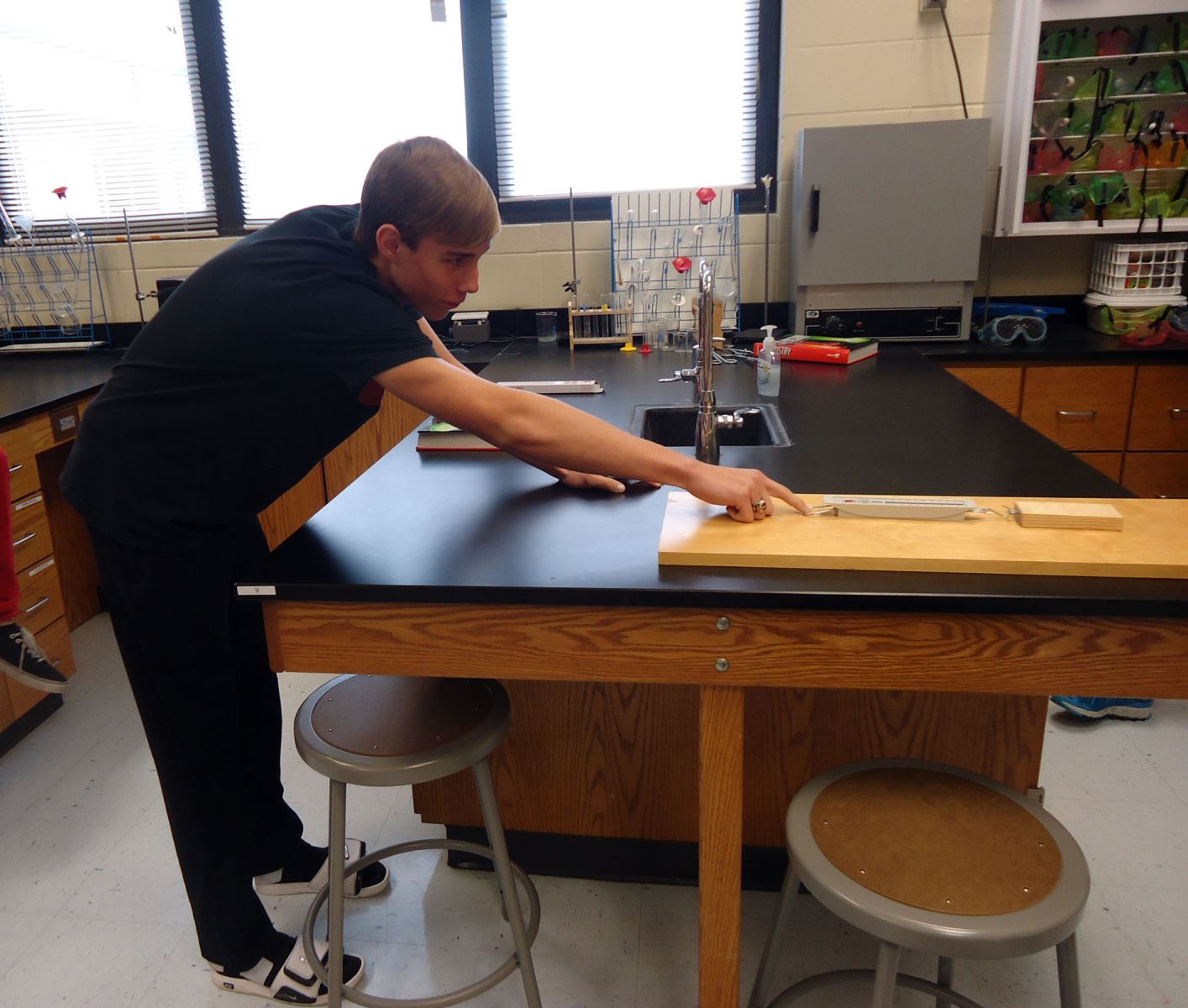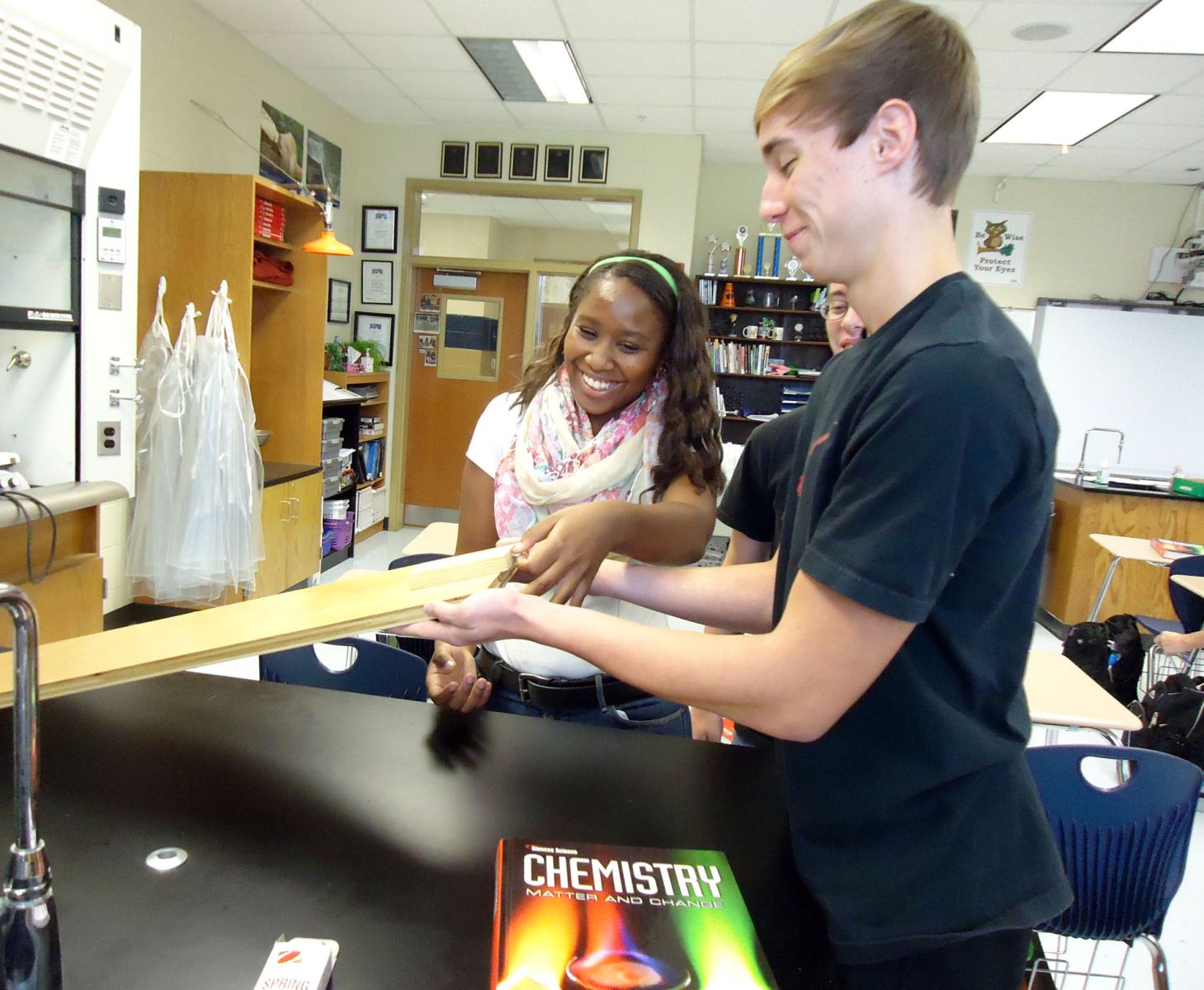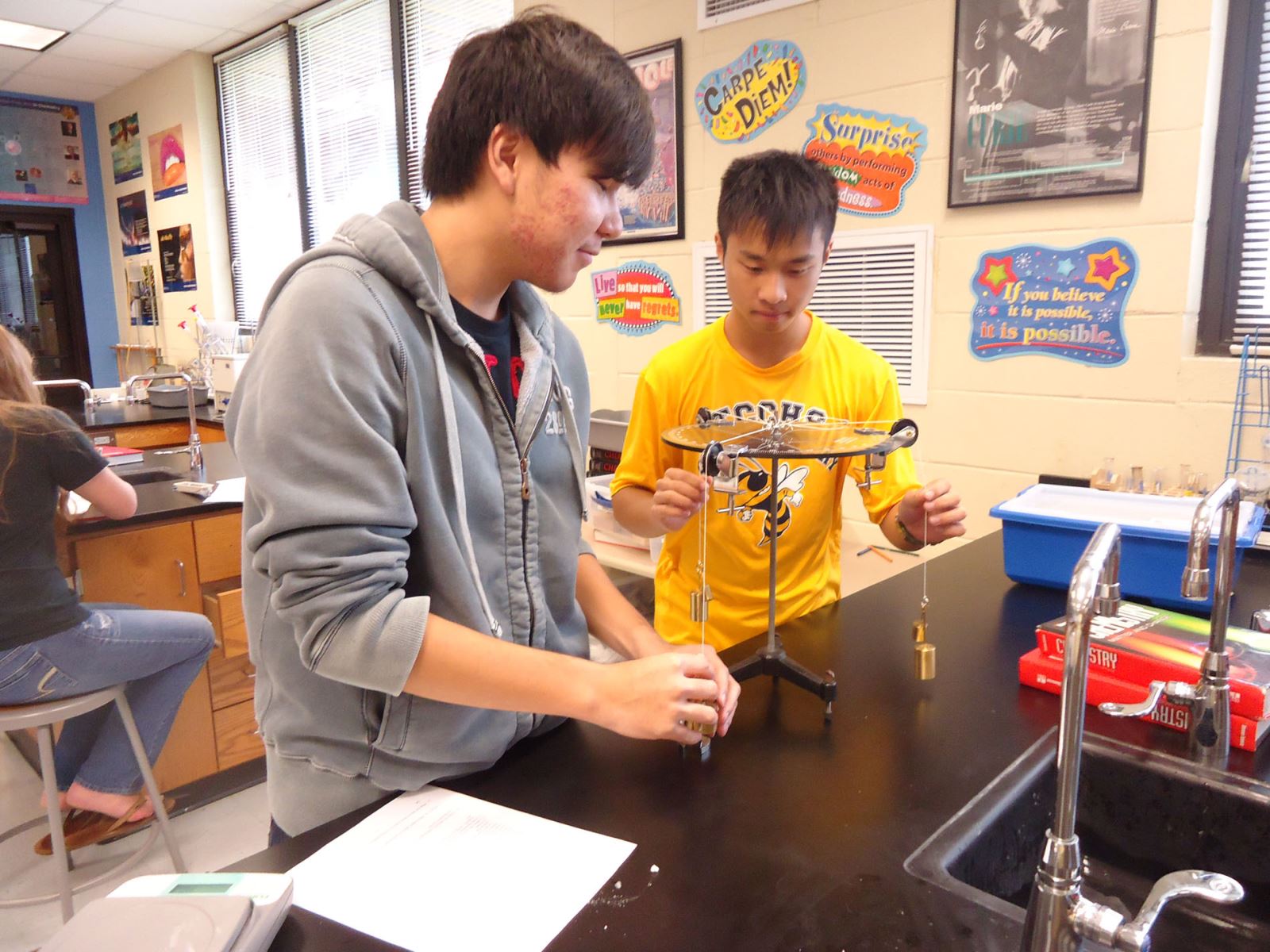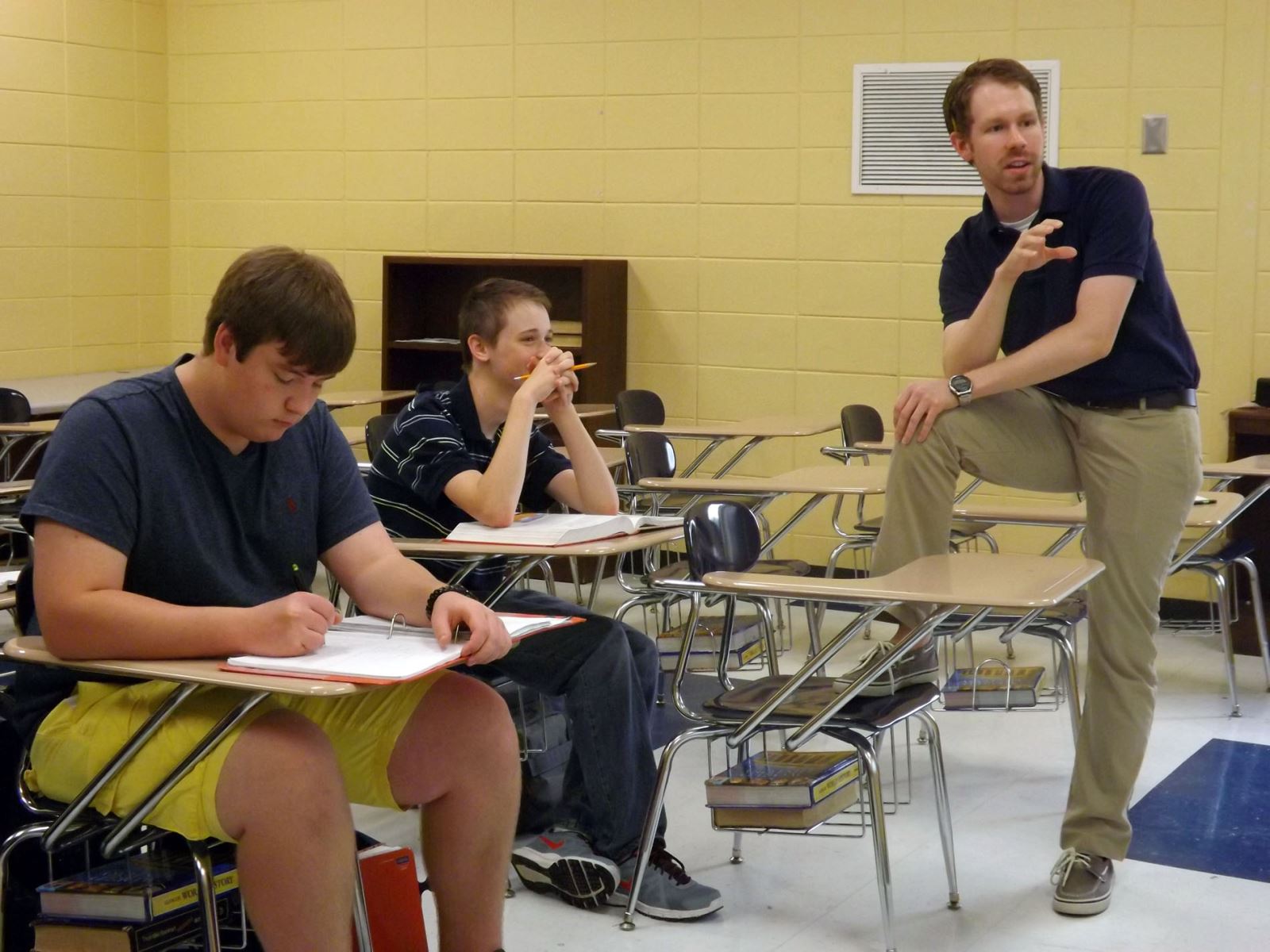Summer is not only a break for teachers; it’s also when they train and prepare for the next school year.
A group of teachers at Thomas County Central High School attended Advanced Placement training during the summer in order to either improve or teach AP classes this school year. These teachers are Brett James, Teresa Carver, Laura Kornegay and Nicole Davis.
“I couldn’t possibly teach this class even remotely effectively without having gone to the training,” Brett James said of training for his AP World History class.
James, a history teacher at TCCHS, attended training in order to teach AP World History. This is his first year at TCCHS, but he taught AP U.S. Government and AP Macroeconomics at his previous school.
“The real treat in teaching AP classes comes from the students,” he said. “They are generally extremely motivated and bright young people.”
AP World History is an important addition to the school’s AP curriculum because “it gives a spotlight to other histories,” James said.
“Unlike many world history classes, AP world is not a ‘West and the rest’ approach,” he said. “There is so much in this class which occurred thousands of years ago that still impact the world today. I think it’s also a great preparation for college. Students are responsible for reading the textbook, listening to lectures, contributing to group discussions, etc.”
James said an AP class is “much more broad,” meaning there is less focus on people and more focus on “trends and overviews of various societies and civilizations throughout history.” AP training helped him learn just “how broad” AP World History is as a class.
“It was a bit different than the other two I took, which were more like a crash course,” James said. “This one was more like a buffet of ideas and resources for us to sort through later and find what we like and what we don’t. I also learned how different and difficult the free response questions are. As a result, I have us do one writing assignment a week.”
Teresa Carver teaches AP US History. She attended summer AP training in order to learn about a redesign made to the course by the College Board, the entity responsible for AP courses/curriculum.
“The College Board has provided more details about what they expect to be taught in an AP US History instead of testing being open to any trivia from US History,” Carver said.
The biggest change, she continued, is how the College Board will set up and administer the AP exam for the course. Students must pass this exam with a certain score in order to receive college credit.
“Multiple choice questions are now tied to a stimulus, a primary document or other information, that students must analyze and use to answer questions,” Carver said. “Students are now required to complete five essays, one of which is a document based essay. Students are required to analyze seven documents and write an essay using information from the documents and their own prior knowledge to construct a well-developed essay.”
The redesign, Carver said, will help students develop analytical skills.
“They will learn to think, develop inferences and conclusions,” she said. “Students will be able to successfully handle college work and independently be able to examine primary, secondary, and tertiary sources, understand the information, and link information across time periods.”
Carver said US History’s focus is on “our development as colonies and as a nation” and students learn “about initial colonization through recent history.”
She said the course is important both to students and curriculum because, in addition to being a graduation requirement, “it enables students to better understand themselves and who we are as a nation, where we have been and where we are heading.”
Science teacher Laura Kornegay received training for her Physics 1 class. Physics 1 & 2 replace the traditional Physics B recommended by the College Board.
“Breaking the one year course into two years allows students to do a lot more inquiry based lab work and develop much deeper understanding,” she said. “AP Physics 1 is an algebra-based physics class that explores topics usually covered in a first semester college course. Topics include Newtonian mechanics, work, energy, power, mechanical waves, sound, and circuits.”
Kornegay feels “students need opportunities to take rigorous college level classes” like her Physics course.
“Although this is a tough course, since it covers only a semester of college physics we are allowed to take more time to develop deep understandings of the tough concepts,” she said. “Students benefit from developing critical thinking and reasoning skills that can be used in any subject area. They also can earn college credit and be well prepared for college level science.”
Her AP training included four days of inquiry based labs with other physics teachers, as well as lessons on topics “not typical in high school physics, such as rotational motion.”
In Kornegay’s Physics class, students will spend approximately 25 percent of the time doing lab work.
“It will vary from using force tables to examine force components to balloon races to study Newton’s laws,” she said.
Chorus teacher Nicole Davis attended training in order to teach an AP Music Theory class this year.
“I wanted to teach AP theory because it was my favorite course to take in college,” she said. “Because I have taken several Music Theory classes, I knew that I would have a lot of perspective to pass on to the students that would help them do well.”
Davis said she and her students jokingly call Music Theory “the math of music.”
“We are basically looking at the fundamentals of music and classical music composition and learning the rules for recreating those concepts,” she explained.
This class is “extremely different” from her other music education classes, Davis said.
“We spend less time on performance techniques and focus more on the why or how of music,” she said. “There is discussion and plenty of homework. Also, the piano is the most commonly referenced instrument rather than a typical band instrument or voice.”
The most important lesson Davis learned from training that she has implemented in her class is allowing students to ask as many questions as needed. This way, “rather than assuming we have to begin at step one each time, we can start where the student is,” she said, which “saves class time and helps build good teacher/student communication.”
Davis always feels like she’s learning new things right along with her students.
“Theory has so many steps and rules that I always have to be three steps ahead of the students and anticipate the questions they may have,” she said.



